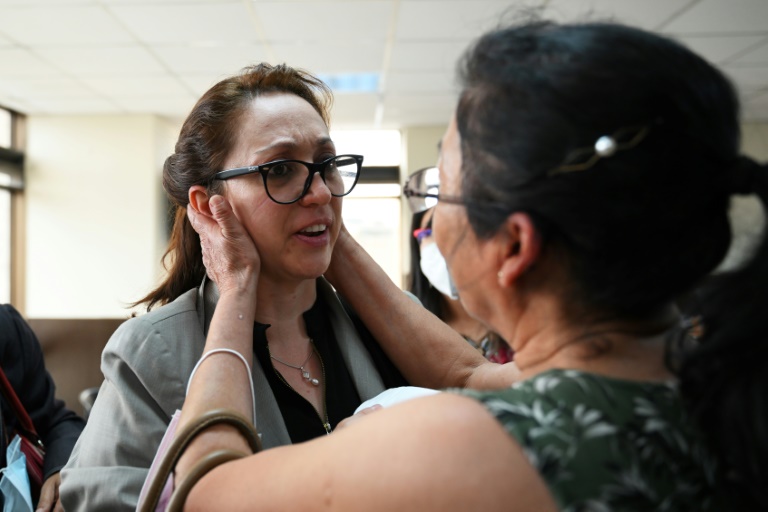Anti-corruption prosecutor in Guatemala given 4-year jail term

Anticorruption prosecutor Virginia Laparra, near tears, departs after her conviction on ‘abuse of authority’ charges
Guatemala City – A Guatemalan court on Friday handed down a four-year jail term to a senior anti-corruption prosecutor in what critics assailed as a blatant effort to undermine a fight against corruption.
The sentence against Virginia Laparra, who has been imprisoned for 10 months already, was announced by Judge Oly Gonzalez after an unusually speedy 18-day trial that was largely confined to testimony from police, government functionaries and a judge once investigated for corruption.
Gonzalez said Laparra was convicted for “abuse of authority” and given a commutable term of four years, which, under Guatemalan law, means she could pay a fine and see her term reduced.
Laparra wept as she heard the sentence.
“This is a legal aberration and a terrible precedent,” she said.
Amnesty International lambasted the conviction as a travesty.
“This conviction is yet another example of the criminalization of justice workers in Guatemala,” said Erika Guevara Rosas, Americas director for Amnesty International. “Virginia Laparra is a prisoner of conscience who is paying a high price for conducting her work as an anti-corruption prosecutor.
– ‘Vengeance’ campaign –
At the end of her hearing, Laparra was ushered away in handcuffs, escorted by two guards. Some 50 supporters shouted, “Virginia is innocent!” and “Down with the corrupt!”
In brief remarks to journalists, Laparra said “no prosecutor evermore will dare present a case.”
US State Department assistant secretary for the western hemisphere Brian Nichols this week tweeted that the US government is “deeply concerned” about Laparra’s prosecution. In a separate tweet, the department said Guatemala’s campaign against Laparra “for doing her job undermines the fight against corruption and impunity.”
A day earlier, Laparra asserted as the trial wrapped up that the charges against her were part of a “vengeance” campaign by right-wing forces intent on protecting corruption rackets and military officers blamed for crimes during the 1960-1996 civil war.
Laparra was the chief of the Quetzaltenango region of the Special Prosecutor’s Office against Impunity when she was arrested as part of apparent payback for her anti-corruption efforts.
The only witnesses brought forth to testify in Laparra’s trial were the two police officers who arrested her, a lawyer for the plaintiff, a handwriting expert and former judge Lesther Castellanos, who Laparra denounced on four occasions for leaking sensitive information.
As part of the backlash against United Nations-financed anti-corruption efforts, some 25 prosecutors, former prosecutors and judges are either in jail or have fled the country. Laparra is the first to be brought to trial and convicted.
